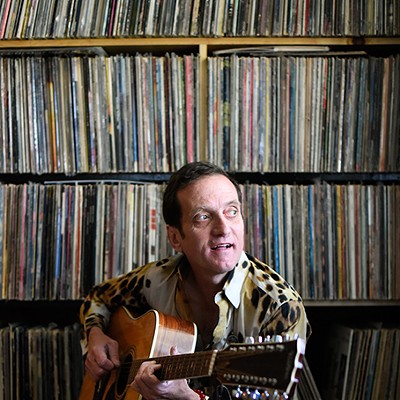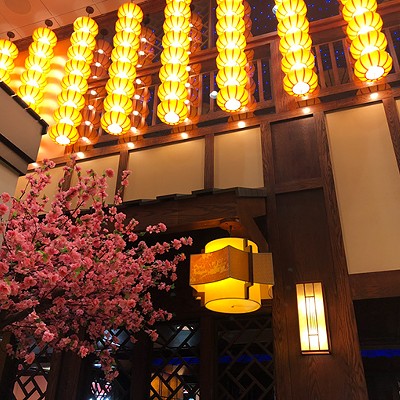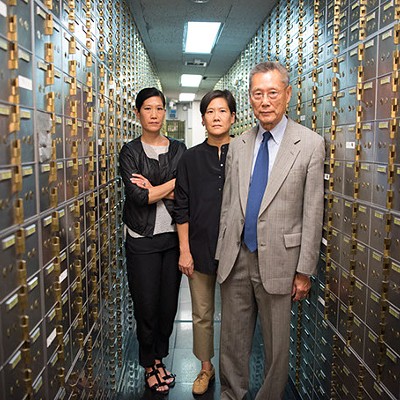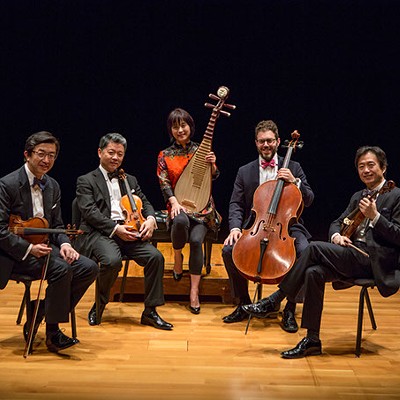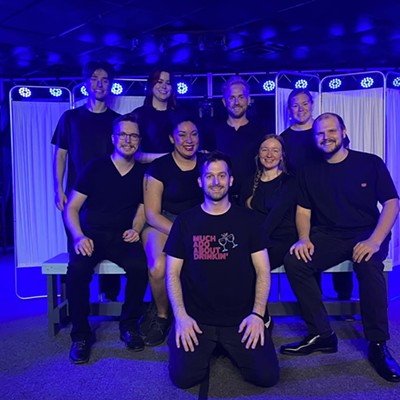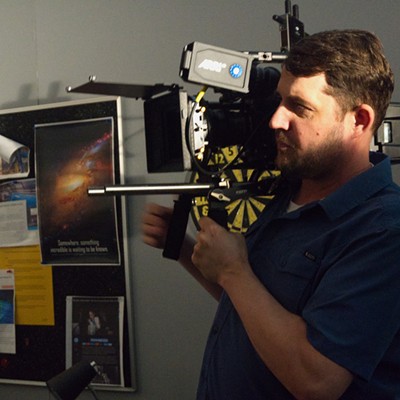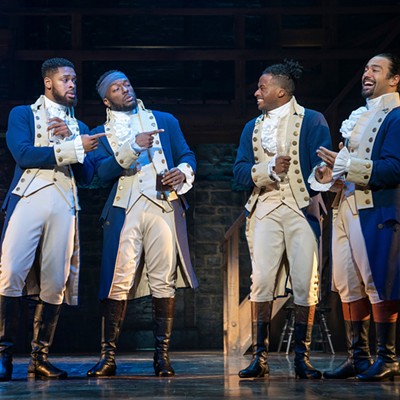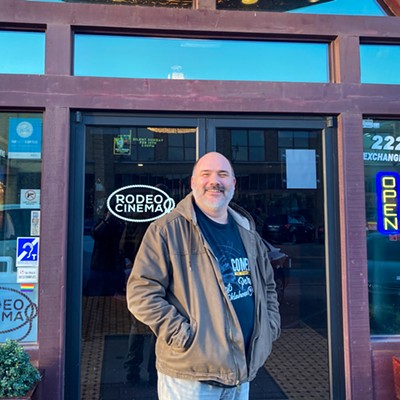
This brief synopsis may be enough for the audience to enjoy the show. But understanding the story behind the group provides greater depth to the experience.
Founded as a New York-based company in 2006, Shen Yun has toured around the world but isn’t allowed in China. Performers practice Falun Gong (or Falun Dafa), which is associated with qigong exercises, or using meditation, breathing exercises and slow movements as a path to morality and virtue.
The spiritual discipline was created in the early 1990s and was later renounced by the Chinese government. Followers said being renounced by China violated their human rights.
When founder Li Hongzhi moved to the United States and became a permanent New York City resident, he helped create the New Tang Dynasty Television station in 2001. Shen Yun resulted from Chinese New Year performances broadcast on the station. Programming takes a critical stance against the Communist Party of China. Chinese embassies have, in turn, released unfavorable statements about Falun Gong.
While facing these political tensions, the performing arts group’s live shows are described as covering 5,000 years of Chinese culture. Stories go from Buddhist and Taoist legends to modern stories about the Falun Dafa, which “evoke positive messages of virtue, compassion and strength of the human spirit,” according to a released statement.
The orchestra blends Western strings, percussion, woodwinds and brass with Chinese instruments like the erhu, often called a two-stringed fiddle. Dances will depict well-known legends, such as Mulan and General Yue Fei. Performers wear elaborate costumes that feature emperors, ministers, generals and everyday people.
Last year, Shen Yun performed in about 110 cities within 25 countries.
Estelle Lin, who is originally from Taiwan, is the presenter of Oklahoma City's Shen Yun shows. She lives in Edmond.
“If you think about Chinese culture in America, it’s just on the surface with no deeper meaning,” Lin said. “But I see Shen Yun as showing how human beings relate to the universe, heaven and earth, which is all part of traditional Chinese culture.”
Lin first saw Shen Yun in 2007 while she was living in New Jersey. She said it “touched [her] soul,” making her want to get involved in promoting upcoming tours. When her family moved to Edmond the following year, she helped with shows in Tulsa (Shen Yun’s first Oklahoma visit); Dallas; Little Rock, Ark.; and other surrounding cities.
Lin believes the performances are important for young Chinese Americans, including her son.
“For my kid, this history is far away.
And he doesn’t learn about it in school, so Shen Yun is a way to give him this education,” Lin said.
Local culture
While Shen Yun is
new to central Oklahoma, the area’s Chinese community practices its own
traditions to keep its culture alive for current and future
generations.
One
aspect is the friendly co-mingling between those who are Taiwanese and
those from mainland China, said Mei Chang, Taiwan native and president
of the Chinese Association of Greater Oklahoma City, a part of the
larger Asia Society of Oklahoma Inc.
“One
year, we had a team from China come to Oklahoma for a competition, and
we invited them for lunch and dinner. And they were so surprised that
the hosts were mainly from Taiwan, and that we gave them a warm
welcome,” Chang said. “We don’t have any political issues at all; we’re
all Chinese and take care of each other.”
Chang
moved to Oklahoma from Iowa in 1997 when her husband, Kuang- Hua Chang,
took a position in the College of Engineering at the University of
Oklahoma. Along with the Chinese Association, Chang is also involved in
Asia Society of Oklahoma activities.
The
Asian population as a whole isn’t large in Oklahoma; it’s 3.2 percent
in Oklahoma County and 1.9 percent in the state, according to 2012 U.S.
Census Bureau data.
This small group creates a tight-knit community, and Chang said they reach out to new residents from China.
“We
get together and share things together, and I think the wonderful thing
is sometimes we invite college students who are alone and say, ‘We are
family. You can count on us. If you have any trouble, you can come to
us,’” Chang said.
OKC’s Chinese community
Nan
Zhang, president of the Oklahoma City Chinese Student’s and Scholar’s
Association, said the organization also reaches out to new students in
need.
“Most of
the members are exchange students at school for a short term, and we
help them look for an apartment, acclimate in the city, buy groceries
and make them feel comfortable,” said Zhang, who originates from China
and has lived in Oklahoma for almost four years, working and studying at
the University of Oklahoma Health Sciences Center and Oklahoma Medical
Research Foundation.
Zhang
and his wife stay connected to the culture thanks to the Internet,
where they enjoy Chinese television and music, along with video-chatting
online with friends and family back home. Zhang believes it makes
living anywhere in the world much easier and more feasible.
The
Chinese community provides helpful tips on things native Oklahomans
might take for granted. For example, Chang said she needed advice to
understand differences in the Iowa and Oklahoma education systems.
Through this experience, she and others decided the college students who
return home during the summer should speak with Chinese middle and
high school students in Oklahoma about adjusting to university life, a
tradition still going on today.
Both Chang and Zhang agree that if they’ve needed help from native Oklahomans, they have received a warm, friendly welcome.
One
of the biggest annual festivals celebrated in Oklahoma City is the
Chinese New Year. Almost 500 people from various backgrounds were on
hand Feb. 1 at Trinity International Baptist Church, 1329 NW 23rd St.,
to enjoy food and performances. Children received red envelopes, which
are given with small gifts during holidays and other celebrations.
A
second tradition is the Mid- Autumn Festival during a full moon in
September. The harvest party features moon cakes (made with a filling of
sweet bean, lotus seed or other varieties) as the traditional dessert.
Chang said most revelers typically gather with small groups of family
and friends.
The festival honors family both near and far, which gives it a particular meaning to immigrants.
“Our family may still be in Taiwan or China, but we say all Chinese should get together, and that’s our family,” Chang said.

